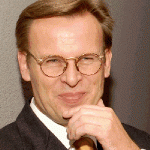
This month’s question from my portal “Ask Dieter: Directions
for living a meaningful Life” comes from Marisol in Mexico.

Opposite than the “mediocre people”, as James Altucher mentions in his article of the Seven Habits of Highly effective mediocre people, my life has been “successful” in many ways and for a lot of people: During the worst crises I got the dream job for many people, doubled my salary; when things were bad in the company I got an offer to grow, increased salary even when I was pregnant, no discrimination at all. I can work from home sometimes. Besides that part I got my dream job as a teacher in a recognized university, I am also starting my business in something I love AND it is growing! (not yet that much that allows me to leave my job but it is in the correct path). All this seems to be pretty and amazing if we consider that I am less than 30 years old but it doesn’t fullfill me, I wake up tired everyday in the same routine day after day, more than one time a day I wish I could leave everything, take my family and go to a small village to grow my own food or going to do social service to a country in need and teach my child that way of life. Then I go back to my reality and get afraid that that is too radical, that I should enjoy my perfect life because that is what everybody is expecting to do. I think I should be patient to let my business grow and then retire. But I don’t want to be too old to retire, I dislike so much and feel sorry for the people around me that have been doing the same routine for the last 20 years expecting a better time when they can be independent. DEFINITELY I don’t want that. Since my husband is studying I am the only source of income in our starting family. I am too crazy when I think I should run away, hug my family and spend more than 1 hour with them everyday? when I believe I should renounce to a successful life?
Thaaaaank you Dieter!!

Hola Marisol!
Thank you for your question!
I think the key part of your question is the difference between what you really want do and the part where you say: “because that is what everybody is expecting to do”. It seems to me that the major reason why you are torn between these two points, moving (mentally) forth and back is because you have not come to a clear conclusion what is your real true meaning and purpose on this planet. All the answers you have come up so far are half hearted only, so none is giving you real satisfaction (despite all the “success” according to the standard, material definition).
It took me years, not to say decades, to find the right answer for me. And the reason why it took me so long was that my approach was wrong; or at least single-sided; we are brought up to solve a problem by THINKING: analyse the situation, evaluate the options, and go for the most “reasonable” one.
And this way we are reducing the framework of our decision base to a (small) portion – the outside world, which is mainly based on knowledge, logic and material criteria only. And neglecting almost completely the part, which is the real base for any important decision in our life: our own inner wisdom.
I’d therefore suggest a different (and I admit, unusual) way: approach your inner wisdom. It is there, it is just hidden away, allowed to surface only occasionally (ask yourself, looking back in your life: were your most important decisions based on logic or on your guts feelings?). It is only that while we have learned to “manage” the outside world and its resources, we have never learned to do so with our inside resources; even less so to do so consciously.
And how can you do so?
The answer is simple: meditate. (I told you, it will be unusual). Meditation not as a spiritual practice, but rather to reduce the permanent flux of thoughts programmed into our brains by education, culture and society rules. And this way allow your own inner wisdom to surface. With your own answers. Like, what is really, really, really important to you? What can you do with your talents for your own benefit and the one of your social environment?
Because we know that deep down, inside ourselves, we have basically all the answers to the nagging questions.
And as an added benefit, once we allow this inner wisdom to emerge it will also give us the strength to implement it into day-to-day life. Regardless of the opinions of others or the so-called obstacles.
If you have never done meditation you might want to read a recently published excellent book on how to get started: Search Inside Yourself: The Unexpected Path to Achieving Success, Happiness (and World Peace) (Chade-Meng Tan); written in a funny and profound way. And/or e.g. visit zenecagate.ning.com . And/or simply keep your eyes open for anything regarding meditation which will come across your way from now on.
Trust yourself.
Un abrazo and live a meaningful life,

Dieter Langenecker
PS: “Ask Dieter: Directions for living a meaningful Life” is a monthly no-cost
program that is open to everyone! Each month, I’ll select and personally respond to one question received via the above “Ask Dieter” page that I feel in my heart will help the most people. (You may choose to remain anonymous if you wish, with our full support.) It is my deep, heartfelt intention that in answering your questions I may provide you with wisdom inspirations that in committed application will set you free. Simply submit YOUR burning question at: www.langenecker.com/askdieter.html






